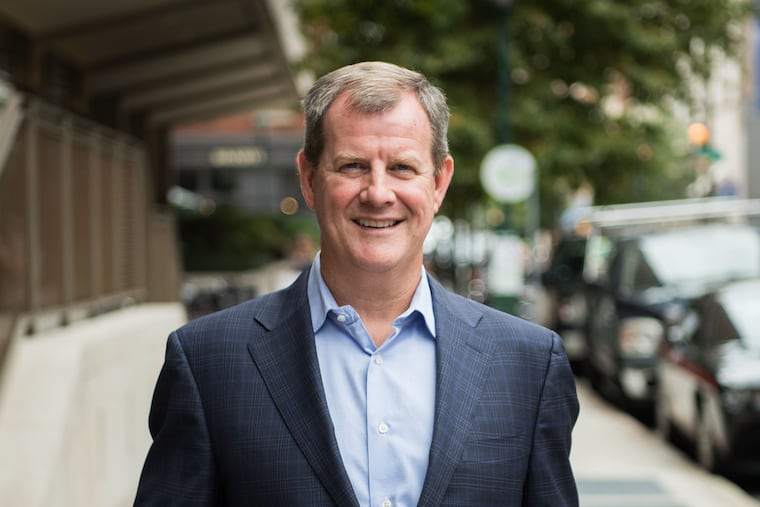Philly brain-cancer vaccine developer tied to Jefferson raises $112 million
“We had four people last September. We have 12 now. We expect twice as many next summer.”

Investors have pledged $112 million more to cancer developer Imvax, which plans to use the money to double its staff and upgrade a proposed gene therapy vaccine developed by Thomas Jefferson University scientists to fight a lethal brain cancer.
The start-up, based in a rebuilt 17,000-square-foot area of the historic Curtis Publishing Co. building near Independence Hall, raised $40 million last fall for a Phase 1 study, labs and staff.
The new money will add “manufacturing, clinical operations and scientific research” for the fight against glioblastoma multiforme, chief executive John Furey said.
Imvax builds on the work of Jefferson neurosurgeon David Andrews and immunologist Craig Hooper. It focuses on a brain cancer that, once detected, typically kills within a year.
The vaccine is made from the patient’s tumor cells. It uses antisense oligonucleotides — small pieces of DNA or RNA that can be used to block production of proteins needed for cancer cell growth.
Unlike other area gene therapy companies with offices in University City and labs or factories in the suburbs, Imvax has room to make its samples and products right at headquarters, Furey said. It’s in converted industrial space that once housed the presses that printed the Saturday Evening Post when it was America’s largest-circulation weekly in the early 1900s.
Furey said Imvax will test its technology against other cancers. “We had four people last September. We have 12 now. We expect twice as many next summer.”
The Phase 1 work was finished before COVID-19 restrictions hit; Furey expects that testing protocols will be ready to accommodate social-distancing rules by the time Imvax’s Phase 2 is on the way.
Investors in Imvax’s new capital-raising round include past backers Magnetar Capital, the Chicago-based hedge fund; Ziff Capital, the New York investment group whose founding family published PC Magazine and Car and Driver; and Switzerland-based Wild Group Management AG. An additional, first-time investor is Invus Financial Advisors LLC, also from New York.
» READ MORE: Fearing the deadly combo of COVID-19 and cancer
Furey was previously chief operating officer at Spark Therapeutics in University City. Spark hit the biotech jackpot when it was purchased for $4.3 billion by Swiss drug giant Roche last year, and has since expanded.
Imvax’s board chair is Peter Corr, former head of global R&D at drug giant Pfizer. Furey, who was born in Ireland and has an MBA from Saint Joseph’s University, spent 20 years building vaccine programs for Wyeth and Baxter International, whose global vaccine business he headed.
Imvax’s cofounder, chief financial officer, and chief business officer is Art Howe, who also cofounded Verve Mobile, the phone-ad company. Howe won a Pulitzer Prize in 1986 as an Inquirer reporter for articles on the Internal Revenue Service.